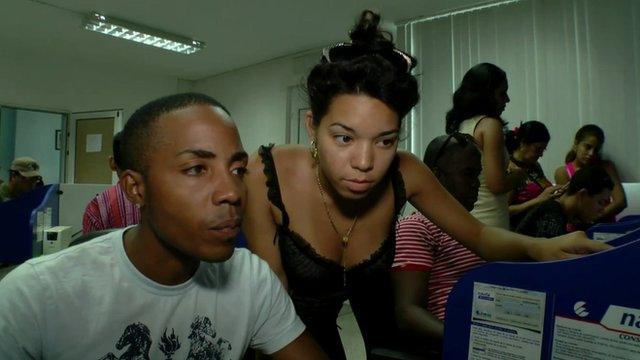Cuba approves first public wi-fi hub in Havana
- Published
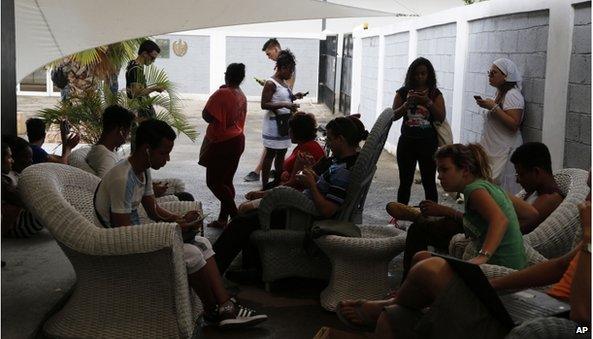
Artist Kcho operates a cultural centre in western Havana that is mostly frequented by young people
Cuba's state telecom agency Etecsa has granted approval to the artist Kcho to open the country's first public wireless hub at his cultural centre.
Kcho, who has close ties to the Cuban government, is operating the hub using his own, government-approved internet connection, and paying approximately $900 (£600) per month to run it.
Only an estimated 5% - 25% of Cubans have any type of internet service.
That is because internet access is incredibly expensive.
For instance, an hour of internet access at a cafe can cost $4.50 - nearly a week's wages for the average Cuban.
Kcho told the Associated Press he decided to offer free internet at the centre, which opened in western Havana in January, in order to encourage Cubans to familiarise themselves with the internet.

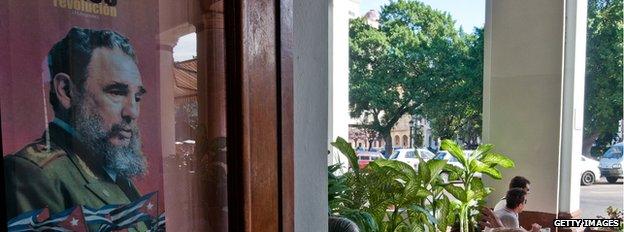
Analysis: Will Grant, Cuba correspondent
The sculptor Kcho is perhaps the only artist the government would permit to run a public access wi-fi service. The last time Fidel Castro was seen in public was at an exhibition by the contemporary artist.
Many analysts in Cuba see this as a small but potentially significant step. What seems clear is that no such internet access could happen without the tacit approval of the authorities, who may well be using Kcho's initiative to test the waters of allowing greater internet access on the island.
But this move is still far from universal internet access for Cubans.
There are a number of areas in Havana where informal users have found ways to access business wi-fi connections as well as a number of illegal wi-fi networks operating in some neighbourhoods.
While together they may be seen as examples of greater tolerance towards internet connectivity by the authorities, the next step - reducing the costs and increasing the availability of connections in private homes - has yet to be announced.

Growing network
The Cuban government has expressed a keen desire to upgrade its dilapidated or non-existent telecommunications infrastructure.
Although Cuba's connectivity to the internet was greatly expanded with the completion of an undersea cable between the island and Venezuela in January 2013, the country still has some of the lowest internet connectivity rates in the world.
On 15 January, the US announced new rules that ease long-running sanctions against Cuba. A trade embargo has been in place since 1962.
A key part of that decision by the Obama administration was a stated desire to help boost telecommunications on the island.
Last week, Etecsa said it had established a direct telephone connection between the US and Cuba for the first time in 15 years, as relations between the two countries continue to thaw.
Netflix, the streaming television and film service, said in February that it had launched its site in Cuba, although it remains unclear how many Cubans actually have internet connections fast enough to operate the service.
- Published12 March 2015
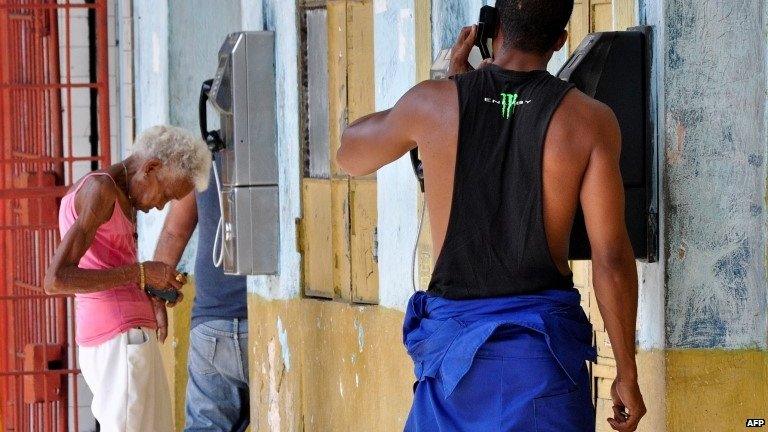
- Published27 February 2015
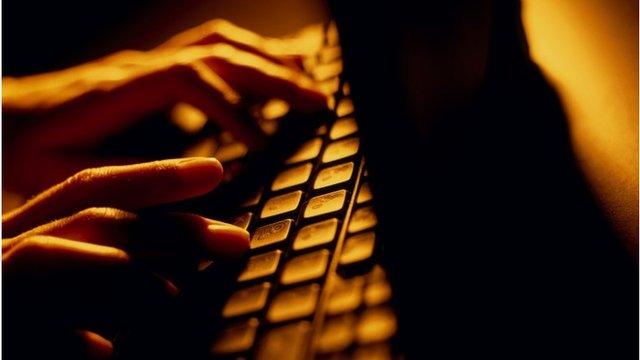
- Published15 April 2014
